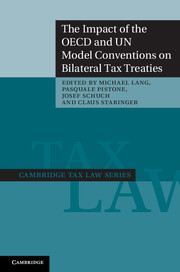Book contents
- Frontmatter
- Contents
- Contributors
- Preface
- Table of cases
- Table of statutes
- General report
- 1 Argentina
- 2 Australia
- 3 Austria
- 4 Belgium
- 5 Brazil
- 6 Canada
- 7 Chile
- 8 China
- 9 Colombia
- 10 Croatia
- 11 The Czech Republic
- 12 Estonia
- 13 Finland
- 14 France
- 15 Germany
- 16 Hong Kong
- 17 Hungary
- 18 India
- 19 Italy
- 20 Lebanon
- 21 Liechtenstein
- 22 The Netherlands
- 23 New Zealand
- 24 Norway
- 25 Peru
- 26 Poland
- 27 Portugal
- 28 Romania
- 29 The Russian Federation
- 30 Serbia
- 31 Slovakia
- 32 Slovenia
- 33 Spain
- 34 Sweden
- 35 Uganda
- 36 The UK
- 37 The USA
- Index
- References
28 - Romania
Published online by Cambridge University Press: 05 November 2014
- Frontmatter
- Contents
- Contributors
- Preface
- Table of cases
- Table of statutes
- General report
- 1 Argentina
- 2 Australia
- 3 Austria
- 4 Belgium
- 5 Brazil
- 6 Canada
- 7 Chile
- 8 China
- 9 Colombia
- 10 Croatia
- 11 The Czech Republic
- 12 Estonia
- 13 Finland
- 14 France
- 15 Germany
- 16 Hong Kong
- 17 Hungary
- 18 India
- 19 Italy
- 20 Lebanon
- 21 Liechtenstein
- 22 The Netherlands
- 23 New Zealand
- 24 Norway
- 25 Peru
- 26 Poland
- 27 Portugal
- 28 Romania
- 29 The Russian Federation
- 30 Serbia
- 31 Slovakia
- 32 Slovenia
- 33 Spain
- 34 Sweden
- 35 Uganda
- 36 The UK
- 37 The USA
- Index
- References
Summary
The relevance of the OECD and UN Model Conventions and their Commentaries for the interpretation of Romanian tax treaties
Introduction
On 1 January 2011 Romania was a party to eighty-three tax treaties signed since 1968.
This total of eighty-three treaties is made up of the following:
- twenty treaties concluded before 1989, out of which: 1. ten were concluded with developing countries; and 2. ten were concluded with developed countries or important business partners of Romania (Cyprus, Denmark, France, Italy, Japan, Norway, Spain, Sweden, the UK and the USA);
- ten concluded for the first time before 1989 and renegotiated after 1989 as follows: 1. developed countries – Austria, Belgium, Canada, Finland, Germany and the Netherlands; 2. developing countries – Morocco, Pakistan, Syria and Yugoslavia;
- fifty-three concluded after 1989, out of which: 1. eighteen were concluded with states that came into being after 1989 from the former USSR and Yugoslavia; 2. nine were concluded with former socialist countries; 3. fourteen were concluded with developing countries; and 4. twelve were concluded with developed/European countries.
As can be seen, of the thirty treaties concluded before 1989, only twenty remained in force; of these twenty, ten were concluded with developing countries representing important commercial partners of Romania in the period before 1989 (Bangladesh, Egypt, India, Jordan, Malaysia, Sri Lanka, Tunisia, Turkey, Yugoslavia (Bosnia and Herzegovina) and Zambia), the only one country in this group having an increasing importance for Romania from a commercial perspective is Turkey.
- Type
- Chapter
- Information
- Publisher: Cambridge University PressPrint publication year: 2012

